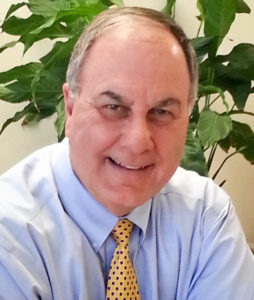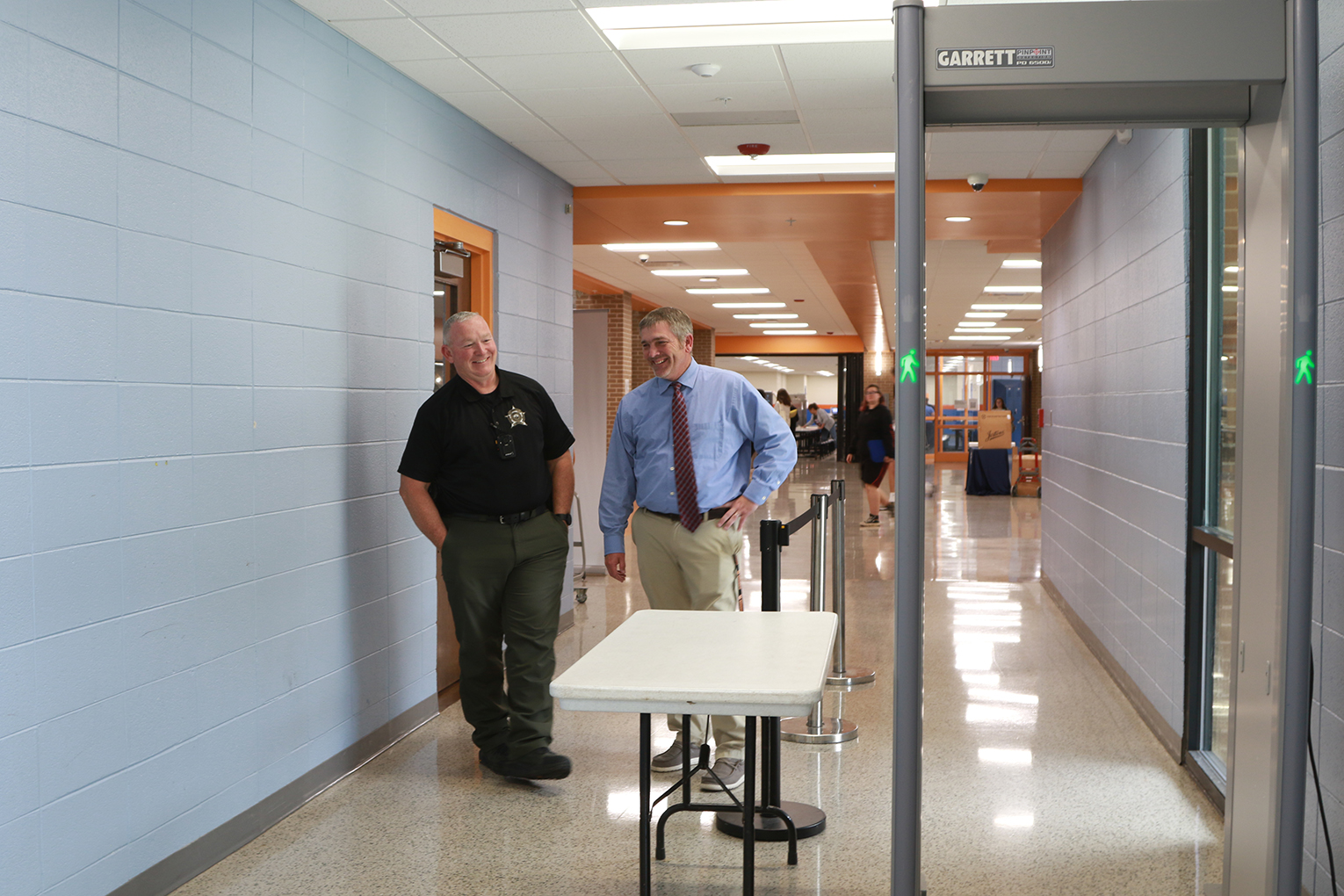
Jon Akers
Now more than any time before, school safety has become a top priority for not only the many people who make up the educational community, but also for the community at large.
Although opinions about the state of school safety in Kentucky and how to improve it may differ, the desire to become actively involved in order to help strengthen and enhance the safety of our children is consistent and widespread.
Many of these very well-intentioned and concerned people turn to the Kentucky Center for School Safety (KCSS) whenever they have a question, need a resource, seek immediate assistance or need training relating to school safety.
As an introduction to KCSS and its services, this initial article hopes to provide cursory information to educators about how KCSS is here to serve you and your students. Future articles in Kentucky Teacher will delve into greater detail regarding our services and best practices.
How did KCSS begin?
Legislators created KCSS when they enacted House Bill 330 during the 1998 General Assembly. KCSS is governed by a board of directors who are appointed by the governor. KCSS began serving schools in February 1999.
According to the statute, KCSS must be administered by a public university. The KCSS board of directors selected Eastern Kentucky University’s (EKU) College of Justice and Safety to administer the center’s operations. KCSS has gratefully received unconditional support from EKU since 1999.
From where does the funding derive?
KCSS receives its funding from the General Assembly’s biennial budget. Fortunately, our legislature and governor have always deemed school safety as critically important and have continually provided the funding needed to support KCSS and Kentucky’s schools’ safety needs.
How does KCSS operate?
The KCSS office at EKU is the central administrative office for all services to our K-12 schools.
KCSS staff members strive to make our office a single point of contact for all educators who call seeking information concerning school safety practices. We endeavor to never refer a caller to another agency to get an answer to their question. Instead, if necessary, we will make the next call and get back with the educators as soon as possible. We know how busy our educators are and we feel it is our responsibility to minimize their effort to get answers to their questions immediately.
KCSS has two long-time contractual partners providing services and resources to our K-12 schools:
- The Kentucky School Boards Association provides trainings and technical services.
- Murray State University is our resource center and home of our website, kysafeschools.org.
KCSS, by statute, also works frequently with the Kentucky Department of Education (KDE) on various school safety initiatives.
For the past three years, KCSS has joined forces with the Kentucky Association of School Administrators (KASA) and is an active member of its School Safety Council. KASA invited KCSS to join its Annual Leadership Institute by adding a school safety strand to its breakout sessions.
KCSS also collaborates with the Kentucky Department of Criminal Justice Training (DOCJT), which trains school resource officers and has a partnership with the Kentucky Association of School Resource Officers.
We believe that the more KCSS can collaborate with child-serving and law enforcement agencies, the more there can be a consistent and accurate flow of school safety information among them.
What services does KCSS provide?
Our most sought-after service is the cost-free, easily accessible Safe School Assessment. This service provides the school with an independent look at the school’s climate and culture as it relates to enhancing the learning environment
We have conducted more than 1,000 assessments since 2003. Each assessment consists of:
- A survey measuring the perception of safety criteria in a school setting that is administered to students, staff and parents.
- After KCSS receives the results of the survey, a team of six school safety assessors visits the school and spends one day interviewing approximately 130 students, staff and parents.
- After reviewing the survey results and conducting interviews, the team prepares a comprehensive report listing the strengths that exist and areas that that need review.
- After the assessment report is delivered to the superintendent and principal, follow-up services are provided if training and/or assistance is requested.
Each October, KCSS recognizes Bullying Prevention Month and School Safety Month. Our colleagues at Murray State University head up this initiative with a major campaign to provide teachers and principals with useful information and resources that can be used immediately on a wide variety of school/child-safety related topics. These resources are always available on our website. During October, it’s not unusual for our website to receive 100,000+ hits per day!
KCSS also offers expansive training opportunities that include (just to mention a few):
- how to develop an effective emergency operating plan both in the school and within the school district;
- bullying prevention;
- de-escalation strategies (for students and adults);
- response to an active shooter event;
- drug and alcohol issues that affect students, suicide prevention programs;
- effective supervision practices;
- bus driver training regarding student behavior; and
- internet safety for children.
KCSS offers a cadre of experienced consultants who provide training at no cost to the school district. If an immediate need arises in a school or district, KCSS will provide prompt technical assistance by sending a consultant that can best address the pending issue or problem.
The most important message we strive to deliver to our educators is that the Kentucky Center for School Safety stands ready to always help whenever you need us. As a former high school principal, I know how valuable having resources are when serious questions arise at a school. KCSS, hopefully, is now one of those resources. Stay tuned.
Jon Akers has been the executive director of the Kentucky Center for School Safety since 2000. He was a Fayette County Public Schools secondary school administrator for 25 years, which included serving as the principal of Bryan Station Senior High School and Paul Laurence Dunbar High School.




Leave A Comment